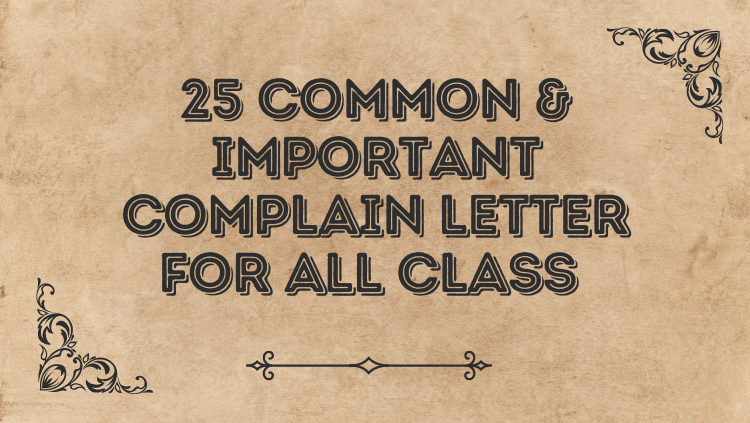Determiner । English Grammar Rules
A Determiner is a word, phrase or affix that occurs together with a noun or noun phrase and serves to express the reference of that noun or noun phrase in the context. That is, a determiner may indicate whether the noun is referring to a definite or indefinite element of a class, to a closer or more distant element, to an element belonging to a specified person or thing, to a particular number or quantity, etc.Common kinds of determiners include definite and indefinite articles (like the English the and a[n]), demonstratives (like this and that), possessive determiners (like my and their), and quantifiers (like many, few and several).
Determiners are words placed in front of a noun to make it clear what the noun refers to.
The word ‘ people ‘ by itself is a general reference to some group of human beings. If someone says ‘ these people’, we know which group they are talking about, and if they say ‘ a lot of people’ we know how big the group is.
‘ These ‘ and ‘ a lot of ‘ are determiners in these sentences.
Classes of Determiners
There are several classes of determiners:
Articles
The definite and indefinite articles are all determiners. Definite article – the Indefinite article – a or an (a is used before a consonant sound; an is used before a vowel sound.) Close the door, please. I’ve got a friend in Canada.
Definite and Indefinite articles
the, a, an
Demonstratives
There are four demonstrative determiners in English and they are: this, that, these and those Note that demonstrative determiners can also be used as demonstrative pronouns. When they are used as determiners they are followed by the nouns they modify. Compare: This is my camera. (Demonstrative used as a pronoun, subject of the verb is) This camera is mine. (Demonstrative used as a determiner modifying the noun camera.)
Demonstratives
this, that, these, those
Possessives
Possessive adjectives – my, your, his, her, its, our, your, their – modify the noun following it in order to show possession. Possessive determiners are different from possessive pronouns – mine, his, hers, yours, ours, their. Possessive pronouns can stand alone and are not followed by nouns. Possessive determiners, on the other hand, are followed by nouns. Compare: This is my house. (my is a possessive determiner. It is followed by the noun house which it modifies) Is that car yours? (yours is a possessive pronoun. It is not followed by a noun.)
Possessives
my, your, his, her, its, our, their
Quantifiers
Quantifiers are followed by nouns which they modify. Examples of quantifiers include: some, any, few, little, more, much, many, each, every, both, all, enough, half, little, whole, less etc. Quantifiers are commonly used before either countable or uncountable nouns. He knows more people than his wife. Little knowledge is a dangerous thing .
Quantifiers
a few, a little, much, many, a lot of, most, some, any, enough, etc.
Numerals
Numbers are cardinal (one, two, three, etc) and ordinal (first, second, third, etc). Cardinal numbers are adjectives that indicate quantity (There are five apples on the table), and ordinal numbers indicate rank or order (This is the first time for me on a plane). There are five apples on the table
Numbers
one, ten, thirty, etc.
Distributives
The words all, both, half, each, every, either and neither are known as distributives. All my life I have been waiting for this moment. Both the dogs have passed away. Half the village perished in the floods.
Distributives
all, both, half, either, neither, each, every
Difference words
other, another
Question words
Which, what, whose
Defining words
which, whose
The following words are pre-determiners . They go before determiners, such as articles: such and what, half, rather, quite
Articles
The definite and indefinite articles are all determiners. Definite article – the Indefinite article – a or an (a is used before a consonant sound; an is used before a vowel sound.) Close the door, please. I’ve got a friend in Canada.
Definite and Indefinite articles
the, a, an
Demonstratives
There are four demonstrative determiners in English and they are: this, that, these and those Note that demonstrative determiners can also be used as demonstrative pronouns. When they are used as determiners they are followed by the nouns they modify. Compare: This is my camera. (Demonstrative used as a pronoun, subject of the verb is) This camera is mine. (Demonstrative used as a determiner modifying the noun camera.)
Demonstratives
this, that, these, those
Possessives
Possessive adjectives – my, your, his, her, its, our, your, their – modify the noun following it in order to show possession. Possessive determiners are different from possessive pronouns – mine, his, hers, yours, ours, their. Possessive pronouns can stand alone and are not followed by nouns. Possessive determiners, on the other hand, are followed by nouns. Compare: This is my house. (my is a possessive determiner. It is followed by the noun house which it modifies) Is that car yours? (yours is a possessive pronoun. It is not followed by a noun.)
Possessives
my, your, his, her, its, our, their
Quantifiers
Quantifiers are followed by nouns which they modify. Examples of quantifiers include: some, any, few, little, more, much, many, each, every, both, all, enough, half, little, whole, less etc. Quantifiers are commonly used before either countable or uncountable nouns. He knows more people than his wife. Little knowledge is a dangerous thing .
Quantifiers
a few, a little, much, many, a lot of, most, some, any, enough, etc.
Numerals
Numbers are cardinal (one, two, three, etc) and ordinal (first, second, third, etc). Cardinal numbers are adjectives that indicate quantity (There are five apples on the table), and ordinal numbers indicate rank or order (This is the first time for me on a plane). There are five apples on the table
Numbers
one, ten, thirty, etc.
Distributives
The words all, both, half, each, every, either and neither are known as distributives. All my life I have been waiting for this moment. Both the dogs have passed away. Half the village perished in the floods.
Distributives
all, both, half, either, neither, each, every
Difference words
other, another
Question words
Which, what, whose
Defining words
which, whose
The following words are pre-determiners . They go before determiners, such as articles: such and what, half, rather, quite










